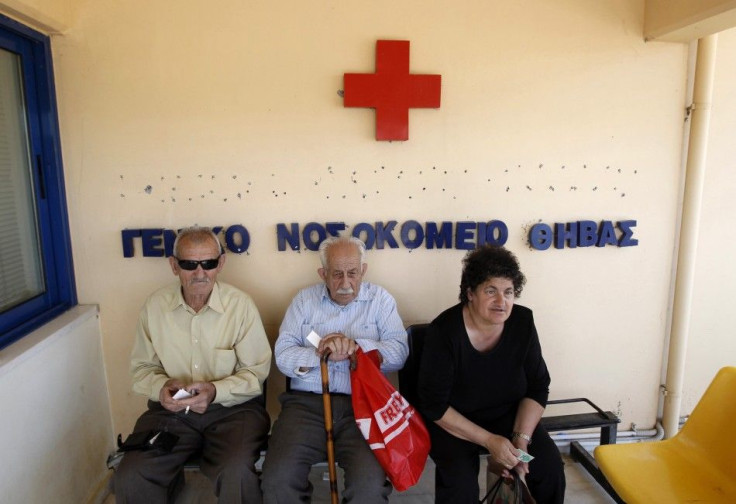Budget Cuts Will Imperil Long-Term Health of Greeks: Medical Researchers

The long-term health of Greek people will be damaged by cuts in spending by the Athens government, as mandated by Eurozone officials in exchange for a financial bailout, warned leading medical experts.
A report in Lancet, the British medical journal, warned that incidences of diseases, including HIV infections, are on the rise and overstretched hospitals and clinics will not be able to cope with the impending onslaught of patients.
There were about 40 percent cuts in hospital budgets, understaffing, reported occasional shortage of medical supplies, and bribes given to medical staff to jump queues in overstretched hospitals, the Lancet researchers wrote.
Concurrently, public hospitals reported a 24 percent rise in admissions, partially driven by fewer patients seeking the services of more expensive private hospitals.
The study further revealed that more and more Greeks are delaying hospital visits due to “long waiting times.”
We noted a significant rise [14 percent] in the prevalence of people reporting that their health was bad or very bad, the researchers stated.
Even more worrying, the HIV infection rate is expected to rise by a whopping 52 percent this year, half due to intravenous drug use.
Overall, the picture of health in Greece is concerning. It reminds us that, in an effort to finance debts, ordinary [Greek] people are paying the ultimate price: losing access to care and preventive services, facing higher risks of HIV and sexually transmitted diseases, and in the worst cases losing their lives,” the report warned.
Greater attention to health and healthcare access is needed.
However, they also cautioned that it will take several years to ascertain the full impact of budget reductions on the health of Greeks.
Dr. Alexander Kentikelenis of Department of Sociology & King’s College at the University of Cambridge (one of the Lancet researchers), told the BBC: Many implications will take longer to show. In the Great Depression it took five-plus years for the effects to show in health in the US.
© Copyright IBTimes 2025. All rights reserved.





















